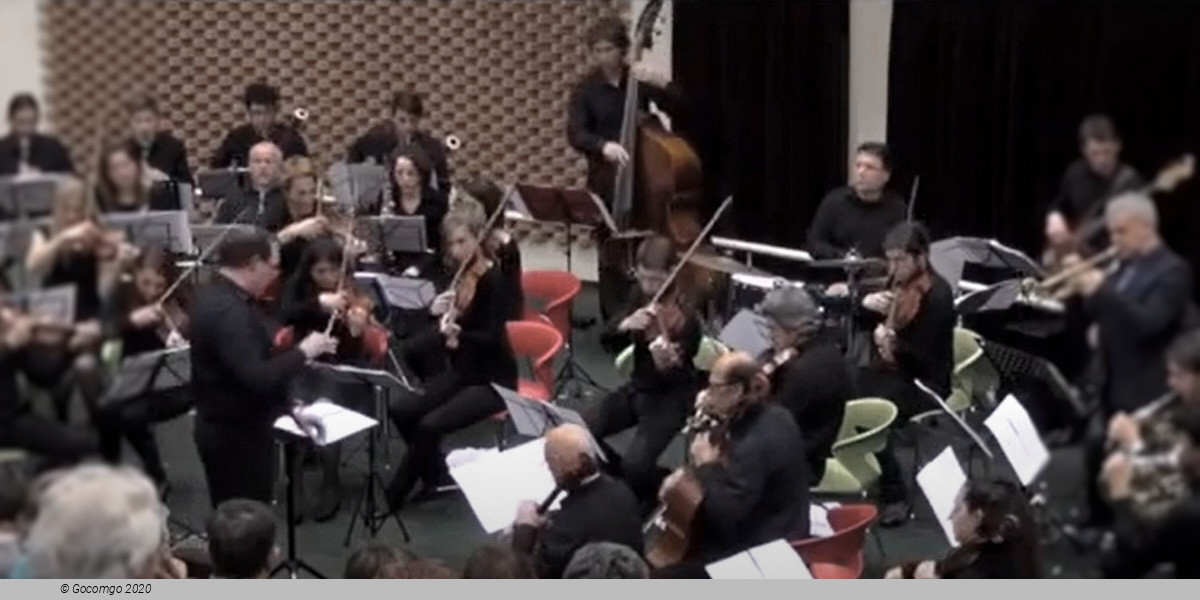Palazzo dei Congressi (Ravenna, Italy)
Palazzo dei Congressi

Corrado Ricci, at the end of the nineteenth century, stated that the Corradini Palace was “grandiose but with excessive proportions in the door”: in fact, the door that overlooks Via Mariani reaches the second floor.
It is surmounted by a balcony supported by two large columns and three ledges. Actually, it is disproportionate compared to the rest of the façade, but it is a beautiful sample of Baroque architecture. The building, in fact, dates back to the seventeenth-century. A few masks are located inside the architrave, above the ledges of the upper floor. One of the masks strangely resembles Garibaldi. At the beginning of the eighteenth century the palace was bought by the Ginanni Corradini family (the one that gave birth to the famous Ravenna futurists, Ginna and Corra) and then sold in 1886. The interior features huge halls with eighteenth-century decorations. In the second half of the twentieth century it became a public building, used as a student residential hall, then as offices for provincial administration and, on the ground floor, location of the Resistence Historic Institute for some time. It then became the location for the Literature and Cultural Heritage Courses and Ravenna Campus for the University of Bologna. As part of an overall consolidation project and enhancement of university courses, a new building was built in the area behind the original one, and since known as the Palazzo dei Congressi (today also “del Cinema”), inaugurated in 2000. Owned by the Province and the Municipality of Ravenna, it is managed by the Flaminia Foundation, supporting institute of the University of Ravenna’s Campus. It has a conference room with 320 armchairs in a tiered amphitheatre layout; it is also used for film projections; additional complementary and service areas are located on two floors. It is also the location for film festivals, exhibitions, and literary meetings.

